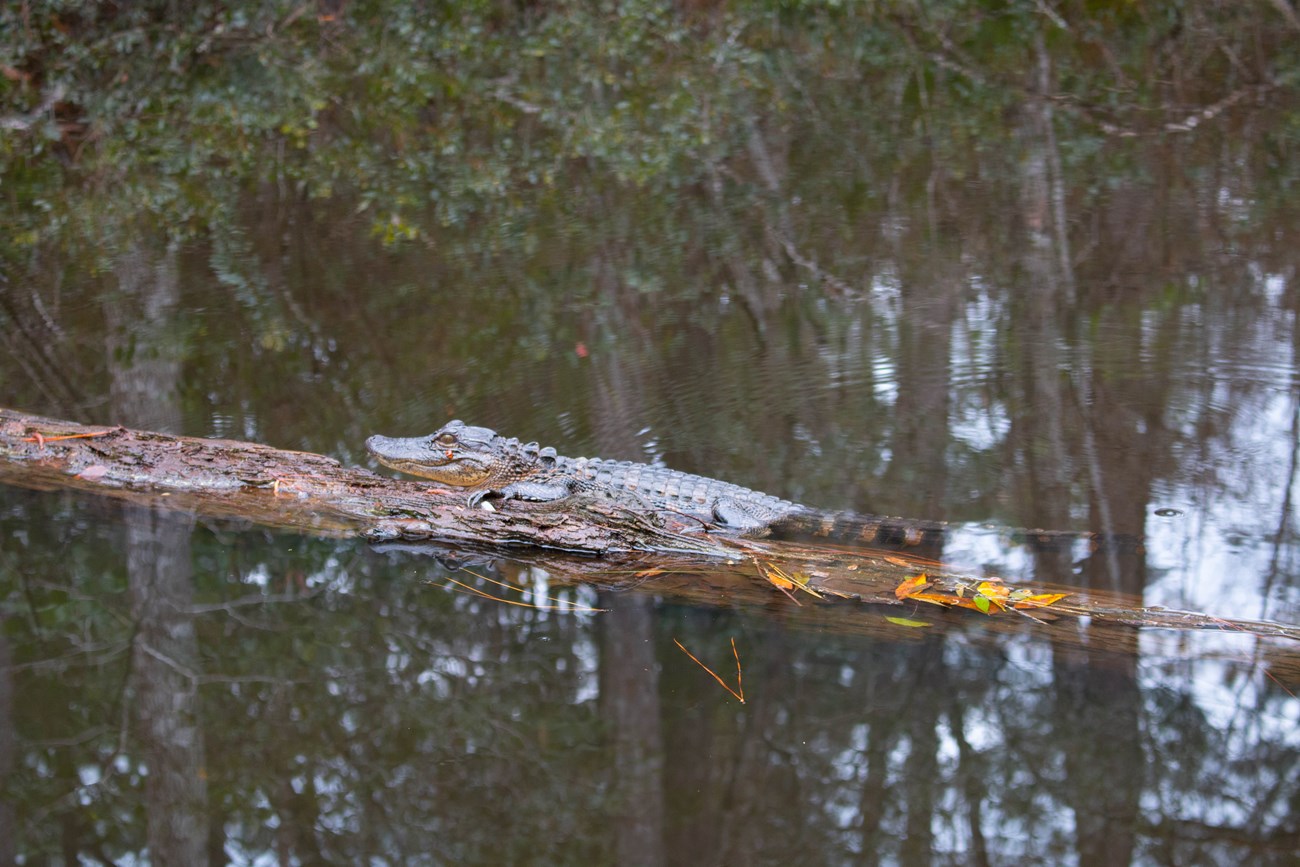
NPS/Adams American Alligators are the state reptile for Florida, Louisiana and Mississippi. In the park, you're most likely to see alligators in the Davis Bayou Area. Alligators are large reptiles with armored bodies, four short legs and a flat tail. They have a long rounded snout with upward facing nostrils so they can breathe while the rest of their body is submerged in the water. With 74- 80 teeth, alligators have impressive jaws and a bite force of 2,125 pounds per square inch. Their webbed feet and strong tails propel them through the water, but they also have bursts of speed on land. American alligators live about 50 years in the wild, and though they can get bigger, females average about 8 feet long while males average about 11 feet long. Alligators range from southeast Oklahoma and east Texas to North Carolina and Florida. They prefer fresh bodies of water but can also be found in brackish (a mixture of salt and freshwater). Alligators are also known as ecosystem engineers, creating their own habitat with their feet and snouts. These holes can also provide habitat for other organisms.
Adult alligators eat fish, snakes, turtles, birds and small mammals, while juveniles will eat insects, amphibians and small fish. As apex predators, alligators maintain the populations of other organisms in their ecosystem. Without them, the whole ecosystem would collapse.
Females build a nest of soil and vegetation before depositing approximately 32 to 46 eggs in late June or early July. Once hatched, the mother gently carries the newborn alligators and drops them in the water nearby. These newborn alligators are about 6-8 inches long with yellow and black stripes. Juveniles, are on the menu for dozens of predators, including birds, raccoons, bobcats, and even other alligators, usually stay with their mothers for about two years.
Alligator Safety
|
Last updated: March 23, 2020
